leadership inaction: what I learned
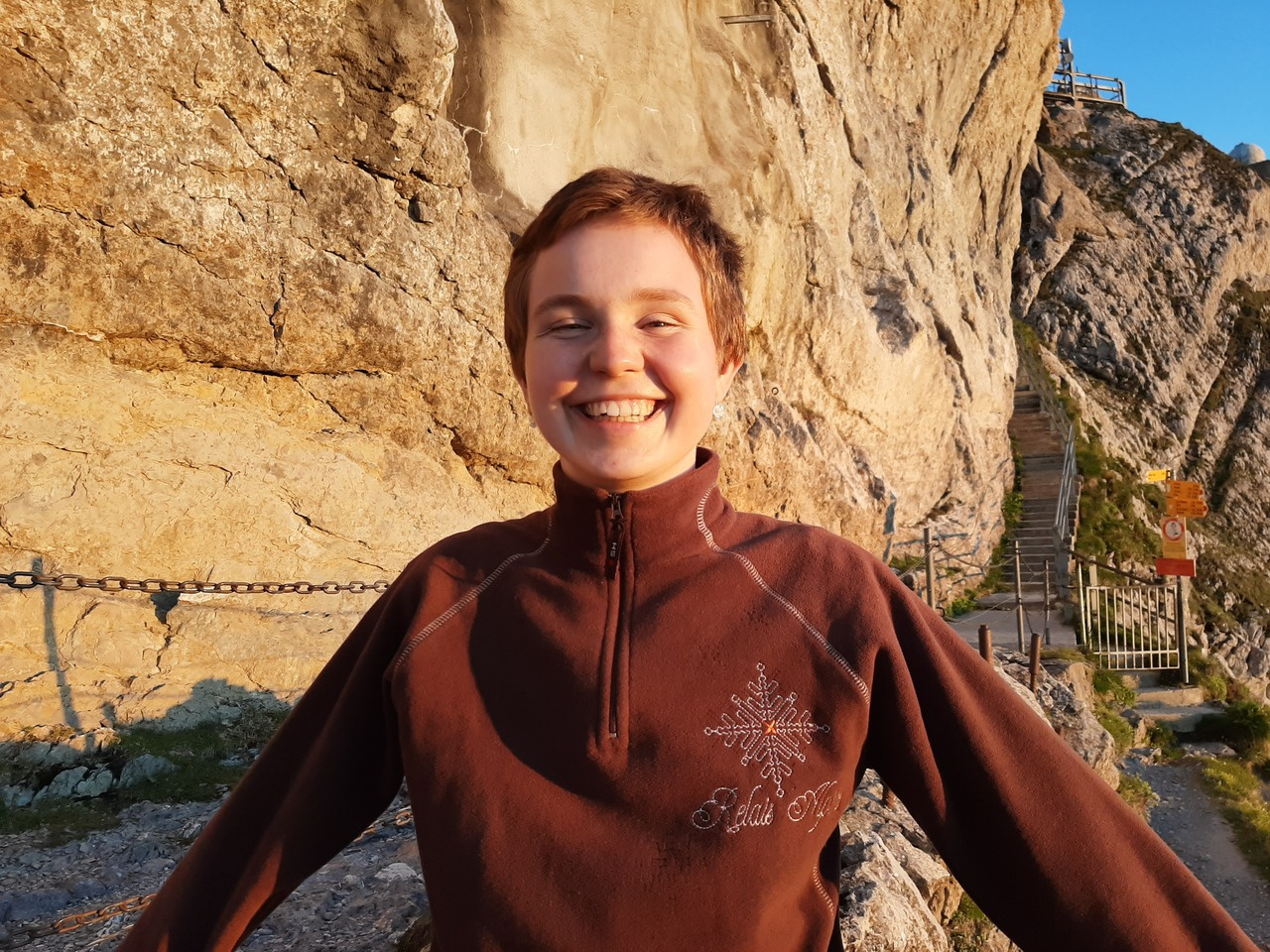
I am Lola (she/her), I grew up in Berlin, Germany and I now attend the University of St Andrews, where I study Earth science. My Laidlaw scholarship started in 2022, when spent the summer researching tiny minerals called zircons in NW Scotland that help date the rocks there. During summer 2023, I volunteered with Geobus, a charity that brings interactive Earth science education to schools around Scotland. This reflection aims to compare my personal experience with the Laidlaw Foundation's intent to "create an international network of diverse, passionate and ethical leaders who will reinvest their skills, knowledge and experience to help others succeed" (https://laidlawfoundation.com/undergraduate-scholars/).
When I applied to the programme, I had already some experience with leadership development through attending the United World College Lester B. Pearson on unceded territory of the Sc'ianew First Nation. I was hoping to gain more insight into leadership in research and community work through the Laidlaw scholarship.
At the first leadership weekend in Hospitalfield, I met some wonderful people and I am very grateful for those connections. The leadership components were introductory, however, the presenters were open to feedback, which was greatly appreciated.
For networking, the informal meetings during summer 2022 of all scholars at 5 p.m. on Thursdays were likely the most effective component for me. Having some snacks, reflecting together, and cheering each other up was invaluable.
As a Laidlaw scholar, I want to give back by providing honest feedback and by helping set realistic expectations for incoming scholars. I would also be open to brainstorming changes in the leadership training if an opportunity to do so arose. From the leadership training, I gained an appreciation of the necessity of challenge. However, I believe that this challenge can also be achieved in the communities students know best instead of going abroad.
I am looking forward to a more critical examination of the value of volunteering abroad, how power relations between the Laidlaw scholars (predominantly from the Global North) and the target communities affect the support received, and what role unconscious racial biases play. Personally, I found the setting of SMART goals (to set measurable aims before the volunteering itself starts) very helpful. From my experience helping the NGO GeoBus deliver Earth science education to teachers in Namibia, I conclude that more critical thinking considering the possible unintended negative consequences of any interventions would be beneficial, especially if the scholars are encouraged to use their "experience to help others succeed". Deep reflections on the ethics and impacts of our projects, how the money invested in us could be used for good instead of funding our summers, and what difference self-determination and agency could make in developmental work could make the scholars' work even more effective.
I am very excited to see in which direction the Laidlaw Foundation will develop in the future. I am thrilled to have a Laidlaw Scholars Advisory Board that will represent the scholars' perspectives when shaping the programme's evolution. People who apply already attend prestigious universities in the British Isles, the United States of America, and Canada (with one partner University in Switzerland and one in Hongkong) and are academically thriving, which limits the diversity in the cohort and thereby the success of "creat[-ing] an international network of diverse [. . .] leaders". A survey of the cohort's current diversity and a strong commitment to diversity and inclusion could equip more people who come from different walks of life with the truly valuable skills, knowledge, and experience that the Laidlaw Foundation provides.
In my second summer, I led my first multi-day trip for whitewater kayaking. I could barely sleep the night before as I was so nervous and feared something might get out of control. This was an invaluable experience as I felt the direct consequences of my actions and took responsibility for the group. Integrating expeditions that foster compassion, in line with Kurt Hahn's approach to education and leadership, into the programme might also advance the Laidlaw Foundation's goal to "create leaders who [. . .] help others succeed".
I acknowledge that both approaches the leadership, the more theoretical one the Laidlaw Foundation takes and the more action-based I experienced during that trip, have their place. I am grateful for both opportunities as they highlight different leadership styles and practices and allowed me to experiment with what leadership practice fits which situation.
To place my leadership journey in context, I have to look back: When I was 17, I grappled with the questions of servant leadership and what it could mean to me.
"The king is the first servant of the state, since Frederick the Great modernized Prussian bureaucracy and civil service", said my grandmother, guiding our way through the German forest, "Listen, girl: leadership is service." I was seven years old when my grandmother gave me this insight into old Prussian virtues. I did not understand a single word. Even now, I am still in doubt of what she meant. However, I gained some experiences that pertain to the question: what does leadership being service mean to me? For this to happen, I first had to leave my home:
[Mexico] Over 100 staring eyes. Bright lights, a speaker's desk, a glass of water. Reading out loud the proposed resolution, with voice and knees trembling. But when I speak, I think of abuelita Paulina, who makes the best chocolate caliente, who holds the family together, who called me out this morning to work on the resolution, and who never learned how to write. I believe that women like Paulina should be able to study, and our resolution conveys the steps to achieve this. Suddenly, I know why I am standing here. I know that my voice matters. I am fourteen, and it is my first time away from home. My friend Ani invited me to stay half a year in Puebla, to go to school with her even though I am only just learning Spanish, and to be part of the Model United Nations Club even though I am afraid of speaking in public. As a group, we find compromises working through amendments. Together, we struggle with formal English, and together, we find courage to speak up in public. And seeing my fellows' smiles as we pass the resolution, I believe that together, we can surpass ourselves.
[France] Yellowed photographs, stolen lives. Juliette, who is my age, telling me about her great-grandparents who were murdered in Auschwitz. I am fifteen and am staying five months with a family in Southern France. Listening to Juliette's story, I fail to hold back my tears. Yet slowly, both of us realise how lucky we are to keep these memories alive, to hold this space, to listen and to cry. And we realise that we need to ensure Auschwitz will never happen again. Juliette and I are just French and German exchange students. Our roles are set by history, national and religious identity. We live in peace, our grandparents did not. We keep these stories alive, our grandchildren may not. Leadership is about guiding the way forward, but how do we know where forward is if we do not have an orientation point? We want to build a peaceful world, knowing of its fragility. So we keep these stories alive. We listen.
[Canada] An invitation to Kyuquot, to paddle through the wilderness, to a gambling game at a school in the indigenous community. It is our mandatory outdoor week. It rains all day, everybody is always hungry and exhausted. Not all of us want to be here, but since our school is devoted to a better world through honour, compassion, and self-sacrifice, most of us try hard to believe in this self-fulfilling mission. I am seventeen and have a compass around my neck. With it comes the responsibility to guide our canoe back. Yet on the way, I realise that I need not one, but two compasses: One to orient myself to the landscape, and one to know who needs a break, encouraging words, and rice krispies. Sometimes, leadership is as much about rice krispies as about navigation.
It has been ten years since my grandmother and I were in the German forest and she was talking to me in a register I did not understand. Now, jotting these notes down at 17, at least I know a little bit more about what leadership could be: being of service to others, with courage, compassion, and a moral compass.
Being 21, at the end of the Laidlaw Leadership Programme, I wonder not only what servant leadership could mean to me but also when servant leadership starts to matter to the people around me. I believe that some school of thought would allow me to frame myself as a leader in almost every situation, be it in the form of self-leadership, delegative leadership, or servant leadership. I am yet to see how it would change a situation if all participants understood themselves as leaders.
A formative moment when leadership started to matter to me was as co-captain of a University Club when I had to balance confidentiality and open communication. Taking charge of situations, I was often torn between how to explain my decision-making and how to protect the privacy of everyone involved. An example would be medical conditions that are not known to everyone but require certain adjustments. In these cases, my leadership was enabled by the trust of the people following that the leaders' decisions are justified, without them knowing the full story.
This relationship illustrates that leadership often only gains meaning in relation to a group. Leadership is strongly interwoven with followership. At my highschool, most students (including me) were highly passionate and could not stop launching new afternoon activities, creating gardens, founding book clubs, making a musical production happen, and fighting for a debate club. Everybody got so excited about creating that it was difficult to find any attendees for the multitude of activities. Everybody took the lead and few people had even time in their day to follow, attend meetings, and persist through the nitty-gritty everyday tasks. My Laidlaw Leadership in Action Summer taught me the importance of the mundane, but important, tasks of labeling, cataloging, laminating, having coffee with the department, maintaining good relations. The justification of leadership is often grounded in titles, prior experience, and fixed hierarchies. Through Lynn and Lauren, I got to know another type of leadership, grounded in bringing leftover treats from "angle cake boreholes" to the 11 a.m. coffee break, going on walks around the coast to make sure the fossilised giant millipede footprints are still where they were last seen, and returning the laminator on time.
I am unsure what should justify someone's position of leadership. From my experience whitewater kayaking, I would expect people to follow my instructions because if somebody takes a swim or gets stuck, it would be my responsibility to organise the rescue. I would take authority from having to step in when something goes not to plan. In which situations is it acceptable, even essential, to follow instructions without fully understanding their rationale, as otherwise, the group could not resolve the situation in time? How much trust in a leader is justifiable? When can trust become dangerous? I wonder how the narratives that justify leadership impact peoples' willingness to follow, how they follow (obeying instructions without questioning them or actively problem-solving), and what that means for the success of a joint project.
For the future of my leadership journey, I want to explore what good followership could look like. Later in September, I will travel with Geobus to Namibia to work with the Geological Survey. Dr Catherine Rose has extensively worked in Namibia and has many industry contacts, Lynn and Lauren are the heart of Geobus and know every workshop by heart, and I will tag along as a follower and try to be as helpful as I can.
I want to express my thanks to Zoe for her compassion and competency and for cheering me up when I needed it most, Lynn and Lauren from Geobus for all their patience, to Dr Catherine Rose for her support throughout the programme, to Cassice, Maddy, and Tilly for support from the administrative site, and to the Laidlaw Foundation for enabling this experience.
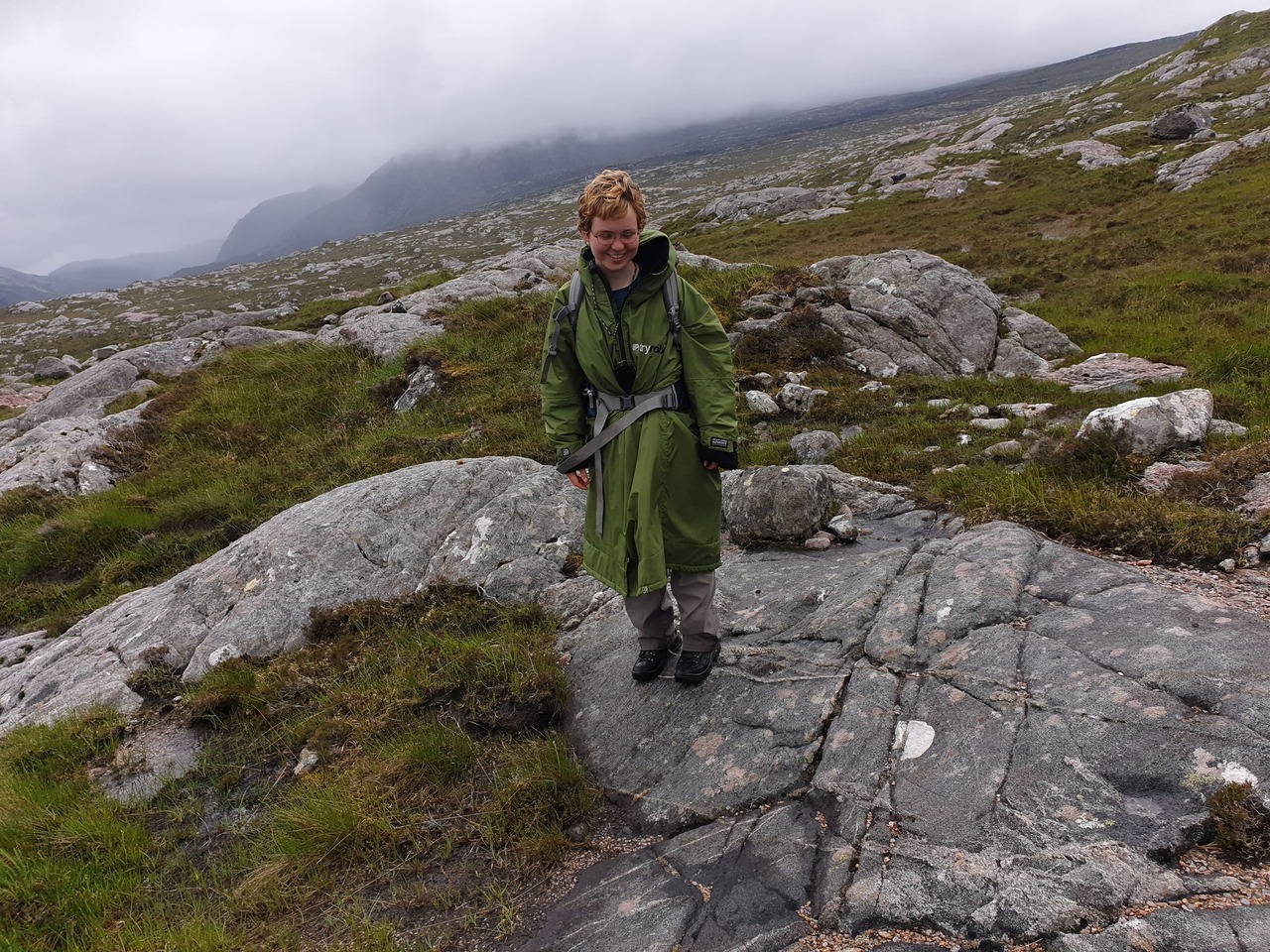
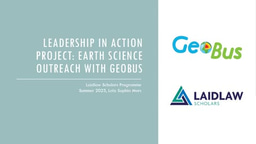
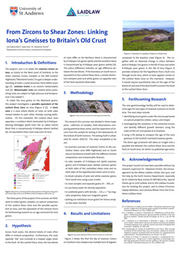
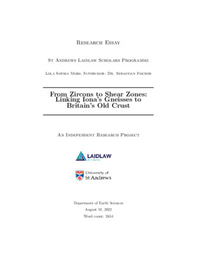
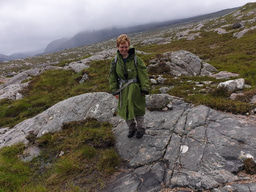
Please sign in
If you are a registered user on Laidlaw Scholars Network, please sign in